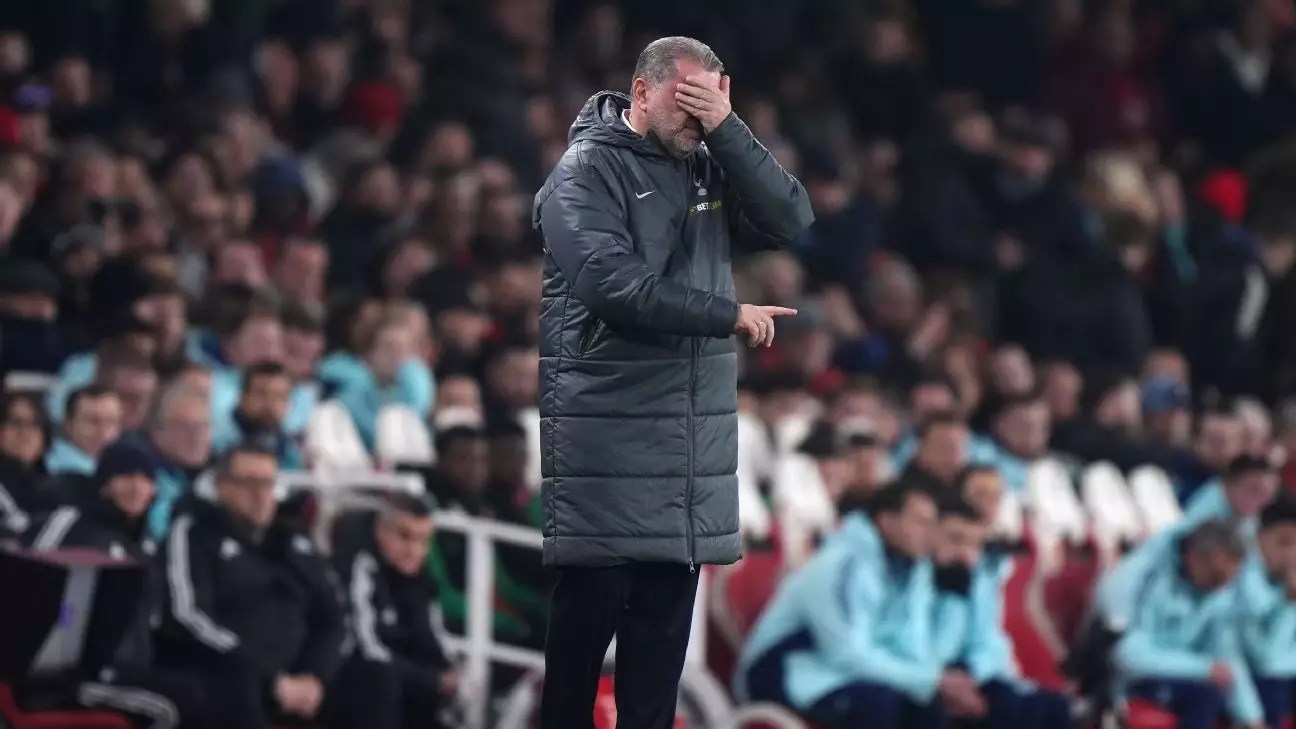The recent clash between Tottenham Hotspur and Arsenal was a stark reminder of the volatility of football, showcasing how quickly fortunes can change within a match. Ange Postecoglou, the Spurs’ manager, expressed his discontent following a disappointing 2-1 loss to their rivals, emphasizing that this outcome should resonate deeply with his players. This defeat, which has left Tottenham languishing in 13th place in the Premier League standings, represents more than just a single game; it highlights persistent issues within the team’s structure and mentality.
Tottenham began the match positively, taking the lead through a well-placed effort from Son Heung-Min in the 23rd minute. However, what followed was a rapid decline into mediocrity as defensive vulnerabilities became painfully evident. The equalizer, a deflected own-goal off Dominic Solanke, summed up a first half of misplaced confidence and sloppy play. Leandro Trossard’s strike just before halftime capped off a nightmarish shift for Spurs, raising serious questions about their tactical discipline and readiness on the pitch.
Postecoglou was forthright in his criticism, labeling the team’s first-half display as “unacceptable.” He highlighted a lack of aggression both in attack and defense, indicating that Tottenham allowed Arsenal to dictate the flow of the game. This failure to assert control was not merely a tactical shortfall; it reflected a deeper issues regarding the team’s identity and competitive spirit. Effective teams are built on resilience and the ability to respond under pressure, aspects that were glaringly absent in this performance.
The managerial decisions taken during halftime—substituting Pape Matar Sarr and Yves Bissouma for James Maddison and Brennan Johnson—point to Postecoglou’s determination to rectify the situation. Unfortunately, despite these changes, the outcome remained unchanged, underscoring the complexity of injecting new life into a team deeply entrenched in a losing mindset. The coach’s refusal to dwell on the controversial officiating decisions during the match reinforces a crucial point: while external factors play a role, accountability lies predominantly with the players and their approach to the game.
Moving forward, Postecoglou’s remarks reflect not only disappointment but also an urgent call for his squad to introspect and reclaim their competitive edge. He wishes for his players to channel this defeat into motivation, in a culture where complacency cannot thrive. The emerging talents like Archie Gray and Lucas Bergvall, despite their youth, should be viewed as part of a broader regeneration plan rather than mere consolation amid a positional crisis.
Ultimately, this loss serves as both a setback and an opportunity for Tottenham. While their current standing is concerning, the repercussions of this derby highlight an essential truth in football: the only way is up, provided the squad is willing to accept their shortcomings and strive for improvement. The path to recovery will require unity, determination, and an unwavering commitment to honing their skills and tactical awareness. If they can harness the pain of this defeat, the future could indeed be bright for Spurs.


Leave a Reply